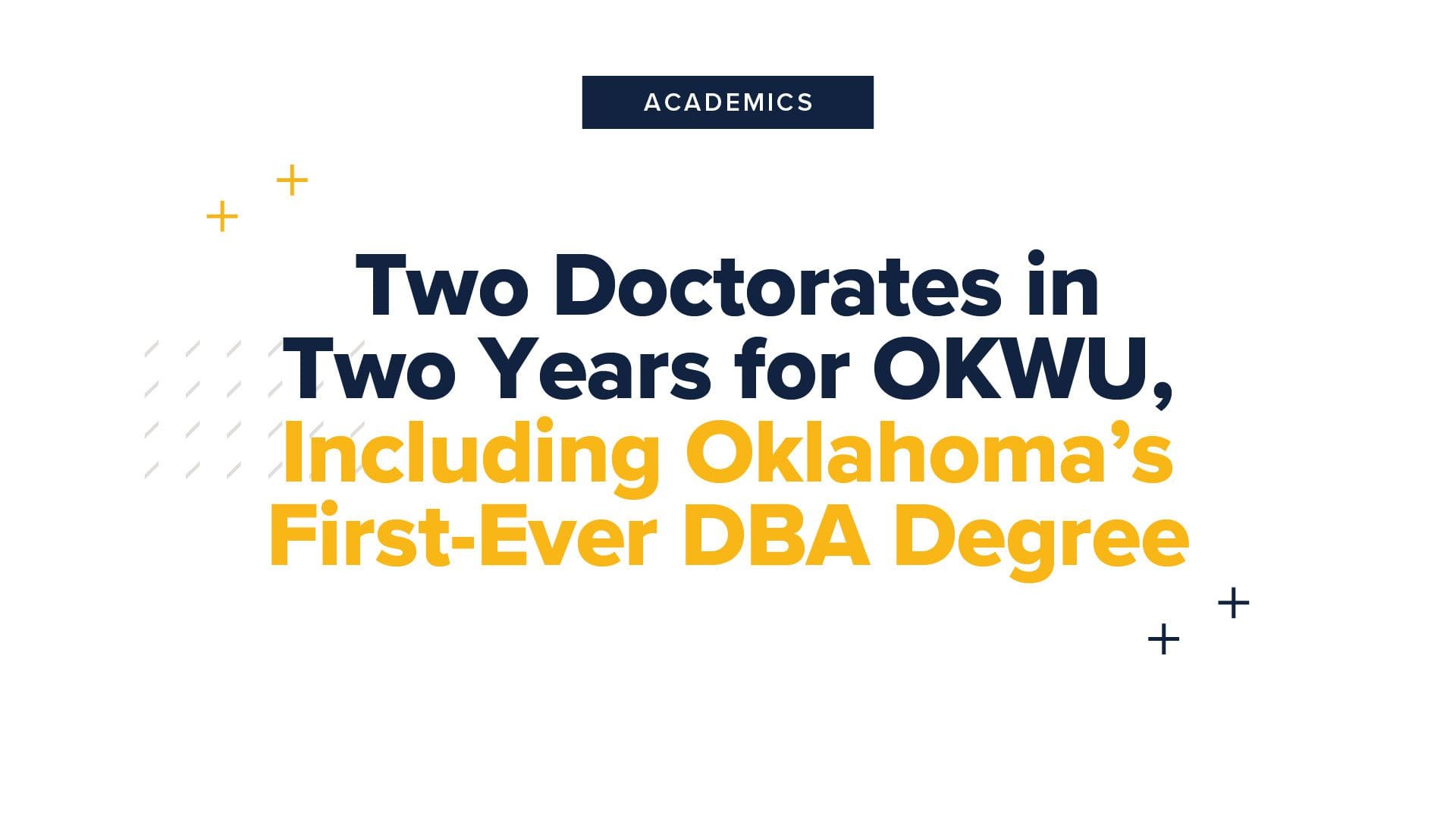

Two Doctorates in Two Years for OKWU
Including Oklahoma’s First-Ever DBA Degree
After breaking new ground last year with the first doctorate degree in OKWU’s 117-year history—the Doctor of Nursing Practice (DNP)—the faculty in the Graduate and Professional Studies program are at it again. This time, they’re launching a Doctor of Business Administration (DBA) degree, the first-ever program of its kind in the state.
“The DBA empowers graduates to pursue multiple new career paths, because it’s not limited to just a research degree,” Dr. Kirk Jackson, the director of the program, said. “For those that want to teach at the university level, the dissertation track program equips graduates to be successful in full-time and part-time faculty roles. But for those graduates that want to leverage their degree into executive leadership or corporate consulting roles, it provides the research-informed perspective for practical problem solving.”
This difference in pathways—a professional degree versus a research-only degree—is the core DNA of OKWU’s unique program.
“No other university in Oklahoma has this degree—a professional doctorate in business,” said Dr. Brett Andrews, OKWU’s Senior Vice President for Academic Innovation.
The Right Education for a Changing Workforce
The new program was designed to address a need for a more diversified business education, as students seek to enter an ever-changing workforce. This meant equipping students to deal with the increasingly difficult scenarios they’d face in the workforce. “The problems facing businesses today require an education that can identify and solve complex problems,” Andrews said. “The DBA program helps business leadership do this.”
Industry executives will teach courses throughout the program, a key part of OKWU’s process.
“Expert faculty will reflect the diversity of perspectives needed to equip our students to be successful,” Jackson said. “Some will be full-time faculty and others will be executives, encouraging innovative thinking in our students.”